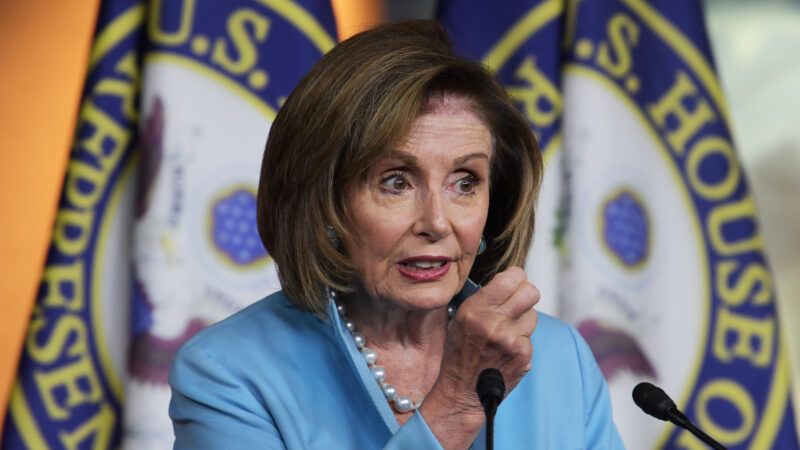The Democratic Dividing Line: Big Government…Or Even Bigger Government?
To spend a lot of money, or to spend a lot more money? That is the question.

There's a big intra-party squabble happening between moderate and progressive Democrats in Congress right now.
On the moderate side, there's a faction that wants to agree to spend a lot of money right now, and then move on to working out how to spend a whole lot more money after that. On the progressive side, there's a faction that wants to work on figuring out how to spend a whole lot of money first, and then agree to spend a somewhat smaller but still very large amount of money after that.
Either way, the goal is to spend an awful lot of money. The fight is about figuring out which order to agree to spend it in.
Nominally, the debate is about political and policy priorities. The moderate faction wants to sign off on the bipartisan infrastructure bill, a $1.2 trillion package of spending mostly focused on roads, bridges, waterways, and broadband, about $550 billion of which is new spending. Their argument is that this is a popular bipartisan bill that reauthorizes a bunch of infrastructure spending due to expire at the end of September, so why wait?
The progressive faction wants to focus on a $3.5 trillion partisan spending package that is set to include most of the rest of President Joe Biden's domestic policy agenda. This spending package is built heavily around social spending: there are expansions of health care subsidies and the child tax credit, as well as new spending on climate policies, like the creation of a Civilian Climate Corps. The plan is to pass this package using reconciliation, a congressional budget maneuver that allows certain bills to pass with a simple majority of votes, dodging a likely Republican filibuster in the Senate.
The progressives' argument is that the reconciliation plan could take weeks or even months to fully negotiate since the Senate version of the plan consists mainly of topline numbers for various spending areas. Democrats, they insist, can't afford to slow-walk the bulk of Biden's agenda, especially since the party is likely to lose congressional seats next year.
But this argument is really about leverage. If the infrastructure bill passes first, then moderate Democrats whose votes are essential have more power to negotiate on the reconciliation package—perhaps forcing it to be a little bit smaller, or insisting that it include more pay-fors. Progressives, in turn, want to hold up the infrastructure bill in hopes of keeping moderates in line.
Those with a preference for limited government will find no heroes here; the fight is between proponents of big government and proponents of even bigger government.
It's not exactly surprising, but it is at least a little bit telling that the moderate position in the party right now is that everyone should agree to a $1 trillion spending bill before going to work on an even bigger spending bill that, even trimmed down, is still likely to come in with a price tag well into the multiple trillions.
The outcome of this fight is likely to tell us something about where the Democratic Party's center of gravity is at the moment, and whether the progressive vision of nearly unlimited spending has actually taken hold in the party. Notably, Rep. John Yarmuth (D–Ky.), the chairman of the House Budget Committee, could be found dismissing concerns about deficits and making statements that are essentially in line with the ideas of modern monetary theory.
In any case, Biden, who serves as an avatar of the Democratic Party's current self-conception, has put his foot down: He made it clear yesterday that he really just wants to sign both bills in whatever order they come in. For Biden, in other words, the particulars don't matter—just so long as the end result is an agreement to spend an awful lot of money.


Show Comments (238)